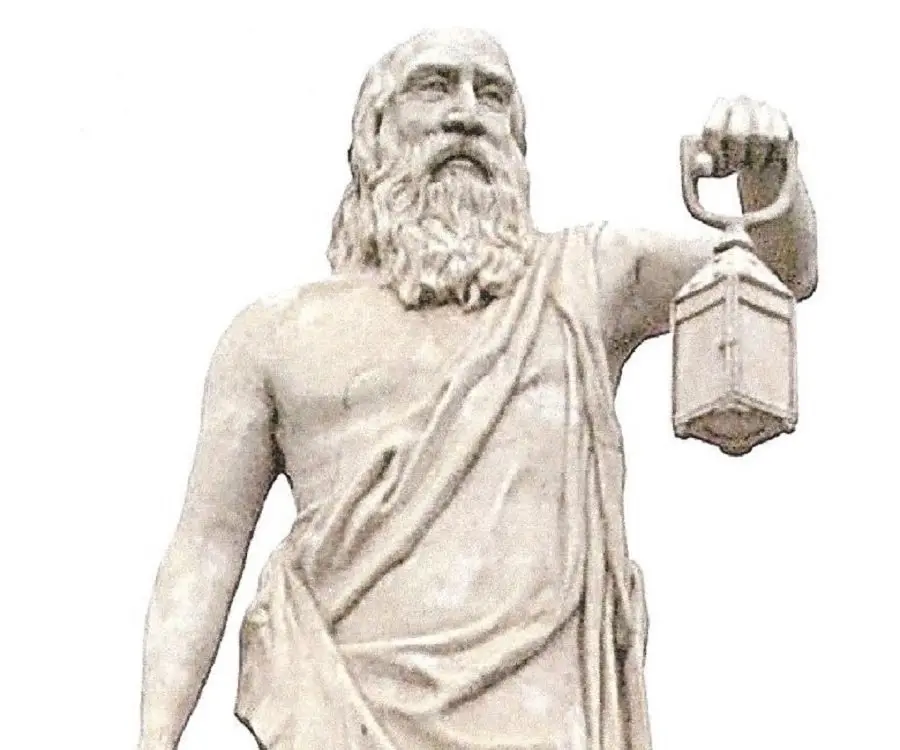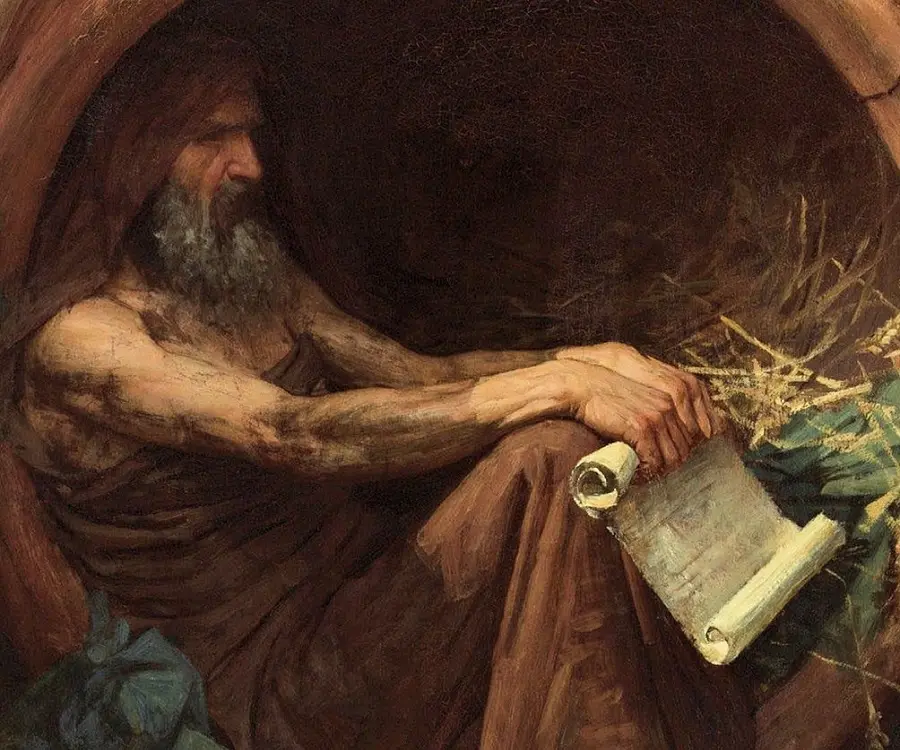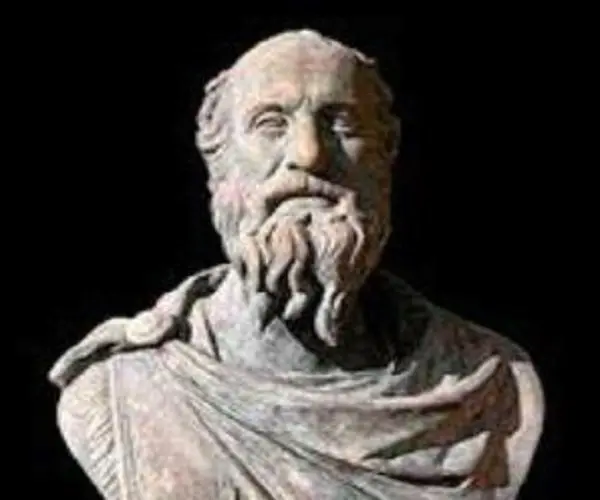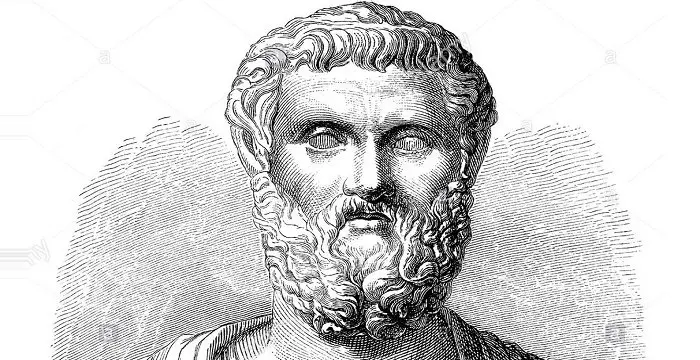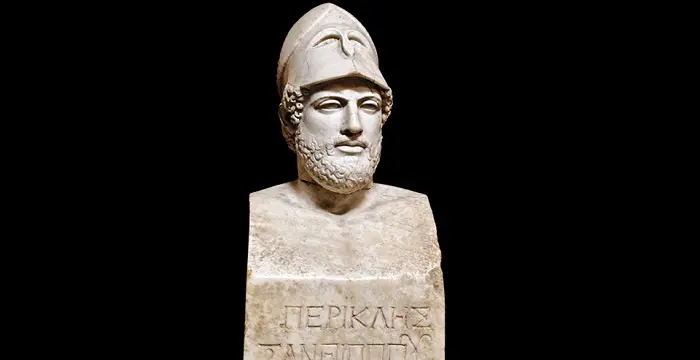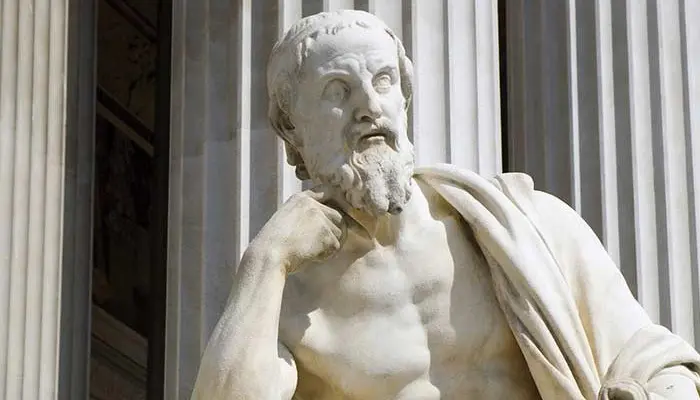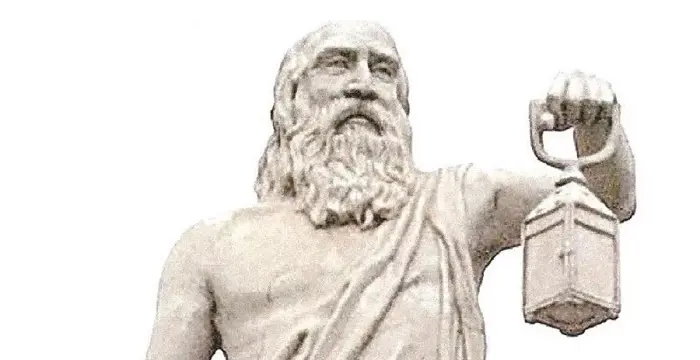
Diogenes Of Sinope - Intellectuals & Academics, Timeline and Facts
Diogenes Of Sinope's Personal Details
Diogenes was one of the ancient Greek philosophers famous for his distinct attitude
| Information | Detail |
|---|---|
| Birthday | 412 BC |
| Nationality | Greek |
| Famous | Intellectuals & Academics, Philosophers |
| Known as | Diogenes |
| Founder / Co-Founder |
|
| Birth Place | Sinop, Turkey |
| Religion | Pagan |
| Gender | Male |
| Father | Hicesias |
| Born in | Sinop, Turkey |
| Famous as | Philosopher |
| Died at Age | 89 |
// Famous Intellectuals & Academics
Bertil Gotthard Ohlin
Bertil Gotthard Ohlin was a famous Swedish economist. This biography profiles his childhood, family life & achievements.
Emily Greene Balch
Emily Greene Balch was an American economist, sociologist and pacifist who won the 1946 Nobel Peace Prize. This biography of Emily Greene Balch provides detailed information about her childhood, life, achievements, works & timeline.
Martin Buber
One of the greatest philosophers to have ever walked on earth, Martin Buber contributions to philosophy is a long-standing one. Explore all about his profile, childhood, life and timeline here.
Diogenes Of Sinope's photo
Who is Diogenes Of Sinope?
Diogenes was a commendable Greek philosopher and one of the founders of the Cynic philosophy from Sinope. He is also remembered as “Diogenes of Sinope” or simply Diogenes. He was the only person to be the pupil of Antisthenes. Being an alleged student of Antisthenes, he maintained his teacher’s asceticism and emphasis on ethics but carried out these philosophical positions with dynamism and sense of humor unique in the history of philosophy. He was among the very few men to openly mock “Alexander the Great” and live. At one time, he cleverly ashamed Plato and looked upon Antisthenes as the true beneficiary of Socrates. Diogenes illustrated his philosophy of Cynicism to Crates who taught it to Zeno of Citium who further forwarded it into the school of Stoicism which was amongst the most enduring Greek philosophy schools. All his life, he was surrounded by controversies.Diogenes was thrown out of his native place for damaging the currency. He then moved to Athens and struggled for livelihood. However, despite being poor and not well-off, Diogenes was much talked about, thanks to his proactive behavior and philosophical stunts. He was usually involved in an argument with Plato. After being hooked by the pirates and sold into slavery, he, by the course of time, settled in Corinth. Diogenes was also a loyal admirer of Hercules. The entire life of Diogenes was an adamant campaign to debunk social values and institutions of what he examined as a society full of corruption. The belief of Diogenes was that the virtue was excellently exposed in action than in theory. All his writings were destroyed by time, but the details of his life is taken from the forms of anecdotes, specifically from Diogenes Laërtius’s book “Lives and Opinions of Eminent Philosophers.”
// Famous Philosophers
Martin Buber
One of the greatest philosophers to have ever walked on earth, Martin Buber contributions to philosophy is a long-standing one. Explore all about his profile, childhood, life and timeline here.
Lao Tzu (Laozi)
Lao Tzu was a legendary Chinese philosopher who wrote the important “Daodejing”. This biography profiles his childhood, life, career, achievements and timeline.
Alan Watts
Alan Watts was a famous British philosopher known for his Zen teachings and interpretations of Eastern philosophy. Read more about this great philosopher in the following article.
Biography detail
Diogenes Childhood and Early Life
Diogenes was born on 412 BC in the Greek colony of Sinope on the south coast of the Black Sea. There is no information on his early life except that his father’s name was Hicesias who was a banker by profession. It appears that Diogenes was also engaged into the banking business helping his father. At one time, Diogenes and his father got involved in a scandal of adulteration or defacement of the currency inviting trouble for themselves. As a result, Diogenes was thrown out from the city. This aspect of the story is certified by the archaeological evidence as several defaced coins destroyed by a big chisel stamp were found at Sinope dated the middle of the 4th century BC, and other coins of the same time period bearing the name of Hicesias as the official who created them. The reason for this act is still not clear, although Sinope had been the witness of clashes between pro-Persian and pro-Greek factions in the 4th century, and there may be some political motives behind the same. Another story regarding this act suggests that Diogenes went to the Oracle at Delphi to take its advice, and was asked that he should “deface the currency”, and Diogenes realized that the oracle meant that he should deface the political currency rather than the actual coins. He, then, journeyed to Athens making his goal for a life to challenge the already present customs and values.
In Athens
After coming to Athens, Diogenes motive became to metaphorically destroy the “coinage” of custom. Destroying the established customs and values became the main motive of his life. Instead of being worried about the real nature of evil, people simply depended on customary interpretations. This distinction between nature and custom remained a most liked theme of Greek philosophers in ancient times. Diogenes is said to have moved to Athens with a slave called ‘Manes’, who eventually left him. With an in-built characteristic humor, Diogenes abolished his misfortune by saying “If Manes can live without Diogenes, why not Diogenes without Manes?” Diogenes continued making joke of such immense dependency relations. He was charmed by the ascetic teachings of Antisthenes who was a pupil of Socrates. Also, in spite of the cruelty he experienced initially, Diogenes became the student of Antisthenes. The fact that the two ever actually met is unclear, but he instantly surpassed Antisthenes in terms of reputation as well as in life’s austerity. He believed his escape of earthly delights a contrast to and explanation on contemporary Athenian behaviors. This attitude was laid in a great abhor for what he saw as the folly, pretense, vanity, self-deception, and artificiality of much human conduct.
According to stories recited, there lies a glimpse of the logical regularity of his character. He adapted himself to the vicissitudes of weather by residing in a tub owned by the temple of Cybele. He broke down his only wooden bowl after looking at a peasant boy drinking from the hollow of his hands. It was also opposite to the believes of the Athenian customs to eat in the marketplace; however, still Diogenes would eat explaining when criticized that he felt hungry when he was in the marketplace. Another strange act that Diogenes indulged in was wandering in broad daylight carrying a lamp. When asked what he was doing, he used to answer, “I am just looking for an honest man”. He generally searched for a human being, but always ended up finding nothing but rascals and scoundrels. When Plato suggested the Socrates' definition of man as “featherless bipeds”, and received great praise for the same, Diogenes pulled a chicken and brought it into the Academy of Plato and said “Behold! I've brought you a man”. After this act of Diogenes, the definition was revised and “with broad flat nails” was added to the definition.
In Corinth
Believing a story which seems to be originated with Menippus of Gadara, once Diogenes was on a voyage to Aegina and was grabbed by pirates. He was then sold for slavery to a Corinthian named “Xeniades” in Crete. When he was asked about his trade, Diogenes answered that he knew nothing about trade but that of governing men and also that he desired to be sold to a man who required a master. Thereafter, Diogenes resided in Corinth as a tutor of Xeniades' two sons for the rest of his life. He completely dedicated his life to preaching the doctrines of virtuous self-control. Also, some suggest that he even lectured a large number of people at the Isthmian Games.
His Relationship With Alexander
In the Corinth itself, Diogenes met Alexander the Great. The accounts of Plutarch and Diogenes Laërtius depict that the two exchanged only a few words. One morning, Diogenes was resting in the sunlight when he was stimulated after meeting the popular philosopher, Alexander. When asked if he wanted any favor, Diogenes replied “Yes, stand out of my sunlight”. Alexander then announced, “If I were not Alexander, then I should wish to be Diogenes”. Also in another story, Alexander saw Diogenes looking at a pile of human bones with extreme concentration. Diogenes explained that “I am searching for the bones of your father but cannot distinguish them from those of a slave”.
Death
Diogenes died in 323 BC. There are a large number of accounts suggesting the death of Diogenes. He is said to variously hold his breathe or to have became sick after eating a raw octopus or having been bitten by an infected dog. When Diogenes was questioned how he desired to be buried, he directed to be dumped outside the city wall so that wild animals could enjoy feast on his body. When asked that if he minded the same, he replied “Not at all, as long as you provide me with a stick to chase the creatures away!” To this, the people were surprised and asked him that how could he use the stick when he lacked the awareness, he replied, “If I lack awareness, then why should I care what happens to me when I am dead?” Later, Diogenes made fun of people's excessive concern with the “proper” treatment of the dead. The Corinthians erected to his memory a pillar on which rested a dog made of Parian marble.
// Famous Greek peoples
Solon
Solon was an Athenian lawmaker, poet and politician. He is considered as one of the ‘Seven Wise Men’ in Greek culture. This biography provides detailed information about his childhood, life, career, works, achievements and timeline.
Pericles
Pericles was an important Greek statesman, orator, patron of the arts, politician, and general of Athens who lived from 495–429 B.C. Check out this biography to know about his childhood, life, achievements, works & timeline.
Herodotus
Herodotus was a Greek historian widely referred to as 'The Father of History'. This biography of Herodotus provides detailed information about his childhood, life, achievements, works & timeline.
Diogenes Of Sinope's FAQ
When was Diogenes Of Sinope died?
Diogenes Of Sinope was died at 2020-04-14
Where was Diogenes Of Sinope died?
Diogenes Of Sinope was died in Corinth
Which age was Diogenes Of Sinope died?
Diogenes Of Sinope was died at age 89
Where is Diogenes Of Sinope's birth place?
Diogenes Of Sinope was born in Sinop, Turkey
What is Diogenes Of Sinope nationalities?
Diogenes Of Sinope's nationalities is Greek
Which company or organization was founded by Diogenes Of Sinope?
Diogenes Of Sinope was the founder/co-founder of Cynic philosophy
What is Diogenes Of Sinope's religion?
Diogenes Of Sinope's religion is Pagan
Who is Diogenes Of Sinope's father?
Diogenes Of Sinope's father is Hicesias
How famous is Diogenes Of Sinope?
Diogenes Of Sinope is famouse as Philosopher



